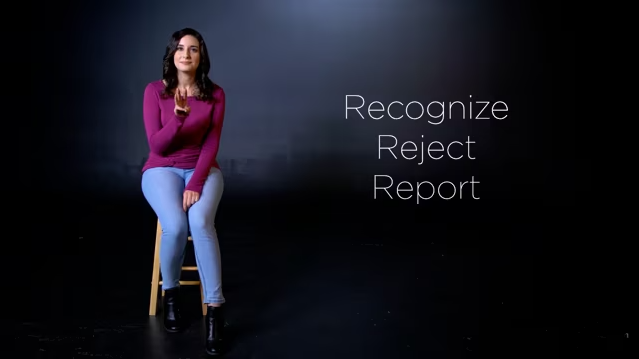As technology continues to evolve, attempts at digital fraud are on the rise. Fraudsters are shifting their focus to online investment scams and coming up with new innovative tricks to steal people’s money.
The North American Securities Administrators Association (NASAA) released its annual list of top investor threats to look out for in 2022. This year, popular and novel investments, such as cryptocurrencies and digital assets, are among the top scams that may be affecting investors.
Despite how sophisticated strategies to deceive people are becoming, there are steps you can take to protect yourself. Let’s delve into the methods fraudsters are using, and how to avoid falling victim to investment fraud.
#1. Investments Tied to Cryptocurrencies & Digital Assets
Thinking of buying cryptocurrency or a crypto asset? Be wary of fake email, texts, websites, and social media accounts exploiting investors’ desire to buy crypto and other trendy investments.
Fraudsters continue to capitalize on public interest in crypto assets to lure investors into scams, using high-pressure sales tactics and promises of high returns with little or no risk.
Buying and trading crypto assets often requires you to strengthen your knowledge to ensure you fully understand the investment opportunity and the associated risks. Several factors may make cryptocurrencies and crypto assets risky investments, including liquidity, security, and volatility risks.
Additionally, many crypto assets and online crypto trading platforms aren’t regulated in Canada, meaning they don’t have the same oversight as those sold through public markets. Visit the BCSC website for resources to research public company documents and disclosure, and do a background check.
We have a guide to help you learn more about crypto assets and their risks, and a crypto quiz to help you start building your knowledge of this emerging market.
How a Crypto-asset Scam Works
Cryptocurrency fraud and scams can come in many forms, including classic frauds, such as pumps and dumps and Ponzi schemes. Fraudsters could pose as crypto traders or create false websites claiming to sell packaged investments. Social media and dating sites are also brimming with crypto scams.
You can find more information about how crypto scams work in these two recent warnings:
- Be On the Lookout for Fraudulent Investment Solicitations Involving Crypto Assets
- Beware of Crypto Scams on Social Media and Dating Sites
The BCSC Warns Investors About Fake Websites Offering Cryptocurrency Packages
The BCSC’s Enforcement Division is seeing an increasing number of websites targeting investors with packaged cryptocurrency or forex products that promise huge, guaranteed profits.
To help people better understand how to identify and avoid online crypto and forex website schemes, we’ve put together two videos featuring BCSC Investigator Chris Thompson, who has direct knowledge of how these sites work. In the videos, Chris shares his knowledge and experience, including examples of what he’s seen in his investigative work. He also gives some tips on what to look for in order to avoid falling for an online crypto or forex scam.
#2. Fraud Offerings Related to Promissory Notes
NASAA continues to warn investors about scams delivered through promissory notes.
Promissory notes can be a form of alternative investments; however, even legitimate promissory notes involve many risks and require sophisticated investing knowledge.
Most promissory note scams follow a predictable pattern and tend to guarantee above-average, fixed interest rates. If you’re enticed by an investment that promises high and risk-free returns, before jumping in, take some time to ask questions about the investment. If you don’t get answers that help you understand it, it might not be the right investment for you.
Keep in mind, legitimate corporate promissory notes are not typically sold to the general public. Those marketed broadly to retail investors could turn out to be scams that cost you your whole investment.
Watch out for the following characteristics indicating a promissory note may be fraudulent:
- The promised returns are significantly higher than the market average.
- The notes are promoted as risk-free, high-interest investments.
- A person selling or promoting the notes is not registered with their provincial securities regulator, such as the BCSC.
- A start-up company with little or no business history offers its “high-quality” notes to retail investors.
#3. Money Scams Offered Through Social Media & Internet Investment Offers
By its very nature, social media makes it easy for us to connect with others, start friendships, research information online, and share content. Although these platforms offer plentiful opportunities, they can also pose a threat.
Social media attracts scammers who take advantage of the fast and effective way to reach millions of people and the anonymity that comes with the internet. Social media is a tool for con artists to promote investment scams and lure people into sophisticated investment schemes.
Often, fraudsters research their potential victims online, including reviewing their social media posts, to come up with a tailored strategy for each victim to maximize their chances of success. There are instances where fraudsters will take control of people’s social media accounts and, posing as friends, will try to trick them into handing over money or personal data.
Investment fraud via social media is constantly evolving, but certain characteristics are common to most scams, including:
- Guaranteed, unrealistic returns.
- Investments with little to no risk.
- A sense of urgency/pressure to buy the investment before it’s too late.
The Dark Side of Online Dating
Social media scams can overlap with or evolve into other forms of fraud. According to the Canadian Anti-Fraud Centre (CAFC), Canadians reported more than $42.2 million in losses to all types of romance scams between September and January 2021.
Millions of people turn to online dating apps to build meaningful relationships. But instead of finding love, many find a scammer trying to commit investment fraud or other types of fraud. It is important to know how to recognize the warning signs of a telltale romance scam to avoid falling victim. Learn about romance scams and how romance scammers typically work in this article.
#4. Financial Schemes Connected to Self-directed Individual Retirement Accounts
Interest in self-directed retirement accounts is increasing, and so are the number of scams targeting people interested in them.
A self-directed retirement account is a tax-deferred investment account that allows people to save for retirement, similar to a Registered Retirement Savings Plan (RRSP).
With a self-directed retirement savings account, people can hold qualifying investments and make their own investment decisions. These include traditional investment products like stocks, bonds, and mutual funds, and more.
With self-directed investing, there is no extra level of protection that a registered investment advisor or firm can provide, and you should rely on your own research when considering an investment.
Beware of “Unlocking” Investment Schemes
Fraudsters are using self-directed retirement savings accounts as a way to add a stamp of legitimacy to their schemes.
Promoters, or their agents, may advise you to move your retirement funds into a self-directed account to conceal the unlocking transfer from your financial institution or advisor. Once you are in a self-directed account, you have control over your funds, and the promoter will provide you with instructions on what to buy.
By having you move your money to a self-directed account, the promoter has succeeded in removing the scrutiny that an independent investment advisor or their firm would provide. This could result in you investing in a scam that will cause you to lose some, if not all, of your money.
Find more information about the retirement savings “unlocking” scheme here.
Tips to Safeguard Your Financial Well-being
Education and information are your best defenses against investment fraud. NASAA recommends, as does the BCSC, that investors independently research registration of investment firms and be extremely cautious about unsolicited offers to invest through social media or the internet. Remember the following:
- Anyone can be anyone on the internet. Scammers are spoofing websites and using fake social media accounts to obscure their identities. Investors should always take steps to identify phony accounts by looking closely at content, analyzing dates of inception, and considering the quality of engagement. To ensure investors do not accidently deal with an imposter firm, pay careful attention to domain names and learn more about how to protect your online accounts.
- Beware of fake client reviews. Scammers often reference or publish positive, yet bogus testimonials purportedly drafted by satisfied customers. These testimonials create the appearance the promoter is reliable – that he or she has already earned significant profits in the past, and new investors can reap the same financial benefits as prior investors. In many cases, the reviews are drafted by the scammer, not by a satisfied customer.
- If it sounds too good to be true, it probably is. Bad actors often entice new investors by promising the payment of safe, lucrative, guaranteed returns over relatively short terms – sometimes measured in hours or days instead of months or years. These representations are often a red flag for fraud. All investments carry some degree of risk, and the potential profits are typically correlated with the degree of risk. Learn more about the warning signs of investment fraud.
Report a Concern
If you have any concerns about a person or company offering an investment opportunity, please contact BCSC Contact Centre at 604-899-6854 or 1-800-373-6393 or through e-mail at [email protected]. You can also file a complaint or submit a tip anonymously using the BCSC’s online complaint form.
InvestRight.org is the BC Securities Commission’s investor education website. Subscribe to receive email updates from BCSC InvestRight.



